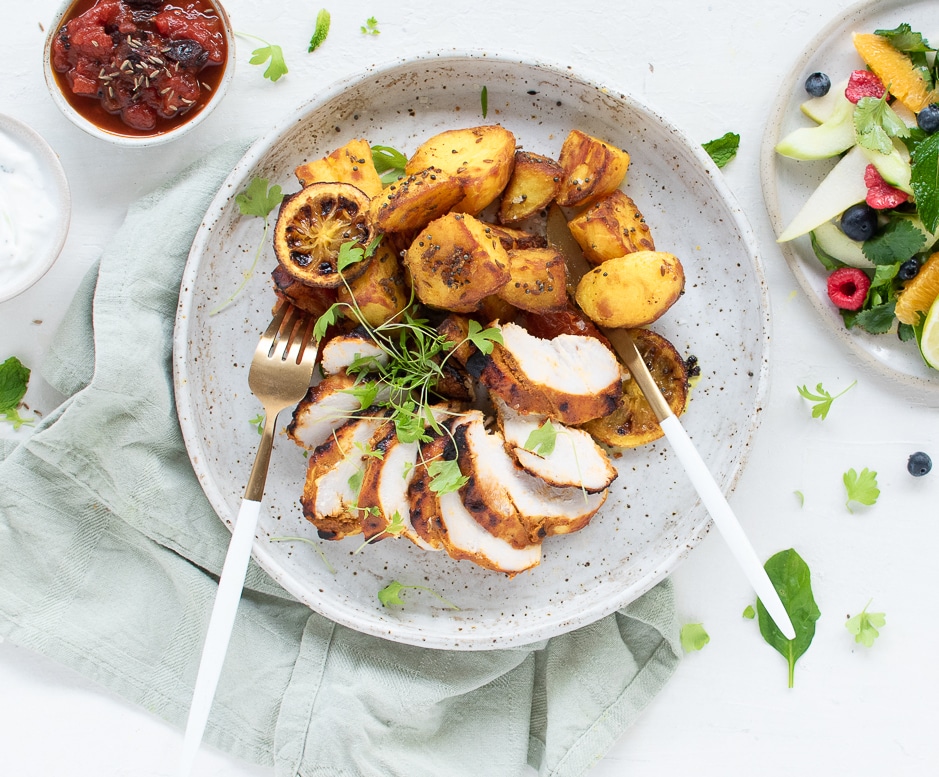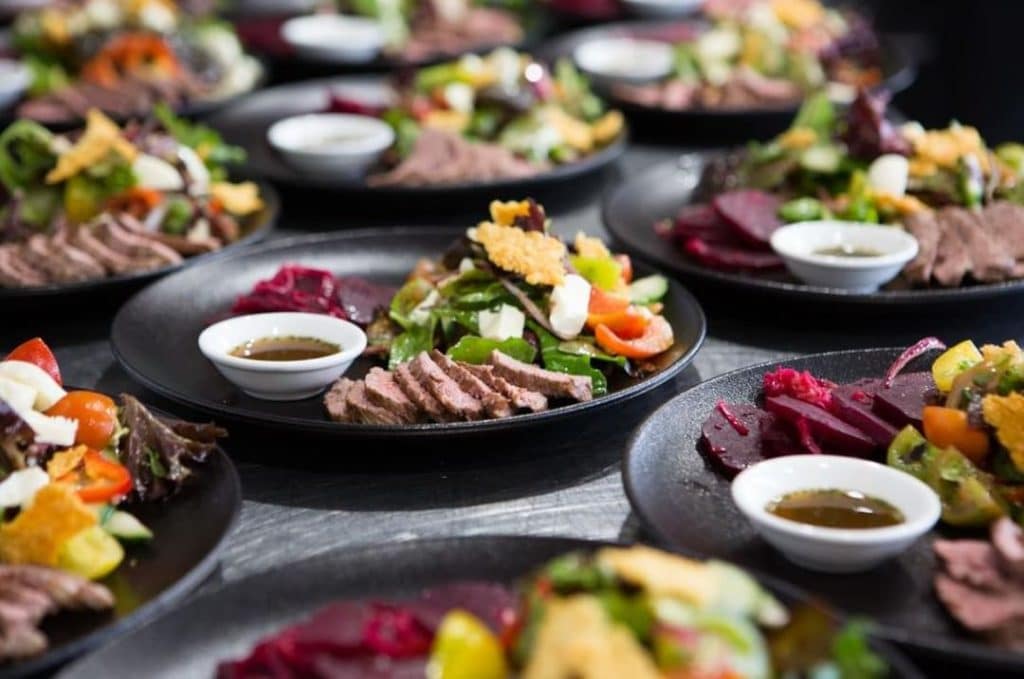You may naturally associate protein with exercising – a need for those who exert excessive amounts of energy and are aiming to pack on muscle. This is the context that protein is commonly referred to in, but is not a reflection of reality. Protein is an essential nutrient for everyone to include in their diets.
Perhaps meeting your daily recommended intake of protein hasn’t been a focus for you when it comes to nutrition, but it absolutely should be – whether you’re training for a marathon or spending your days seated behind a desk.
Failing to consume enough protein can result in symptoms such as fatigue, weakness, increased vulnerability to sickness, sugar cravings, thin and brittle hair and nails, and more.
In this journal entry, we explain exactly what protein is, why our bodies need it, how much we should be consuming each day and different protein sources you can include in your diet.
Firstly, what is protein?
Proteins are the primary building blocks of your body and are composed of smaller molecules known as amino acids, twelve of which our bodies produce (non-essential) and nine of which we must get from the protein in the foods we eat (essential). They help repair and build your body’s tissues, allow metabolic reactions to take place and coordinate bodily functions.
In addition to providing your body with a structural framework, proteins also maintain proper pH and fluid balance. They keep your immune system strong, transport and store nutrients, and can act as an energy source if needed. Collectively, these functions make protein one of the most important nutrients for your health!
The benefits of meeting your protein requirements
Consuming enough protein is essential for optimal health and also for maintaining a healthy body composition. It helps retain muscle when you’re in a calorie deficit and is also required to build muscle. A high protein diet also helps with reducing hunger, stabilising blood sugar levels and keeping you feeling fuller for longer.
Without enough diverse protein food sources in your diet, you risk becoming deficient in certain amino acids which can result in low energy, trouble retaining or building muscle mass (which can become particularly problematic as we age), low concentration and memory, mood swings, unstable blood sugar levels and trouble maintaining or losing weight.
How much protein do we need?
Your body’s protein needs are dependent upon your health and activity level.
If you live an active lifestyle, aiming for 1.2 to 2 grams of protein per kilogram of body weight is a great place to start. The Eat For Health guidelines provide guidance on the number of servings and serving sizes for different genders and age groups.
People recovering from an injury or surgery, older adults and athletes require more protein.
The different sources of protein
The amount of protein we eat every day is the primary factor which determines whether our body is getting enough essential amino acids; however, the quality of the protein we eat is also important.
Proteins from animal sources such as meat, fish, eggs, and dairy are favourable because they contain high and balanced amounts of essential amino acids. Vegetarians and vegans can still meet their protein requirements with strategic meal planning and incorporating certain plant-based proteins like rice and pea protein, which are also high-quality and rich in amino acids.
The following are some fantastic sources of high-quality protein:
- Dairy: cheese, milk, yoghurt (particularly Greek yoghurt)
- Meat and poultry: chicken, turkey, beef, ham, fish, pork, seafood
- Beans and legumes: beans, lentils, tofu, tempeh, soybeans, split peas, chickpeas, falafel
- Nuts: almonds, pistachios, walnuts, cashews, peanuts, nut butters
- Other: whey protein powder, plant proteins such as pea, brown rice, hemp, protein bars

Ways to boost your daily intake of protein
If you struggle to eat enough protein on a daily basis, here are four helpful tips to help increase your daily intake:
1. Start your day with protein
Most people have a low-protein breakfast like cereal or toast, which can make it more difficult to hit their protein target for the day. Adding a source of protein to your breakfast will set you on the right track! Vegetable omelettes, protein smoothies and protein pancakes are some simple yet delicious ways to start your day with a great hit of protein.

2. Bulk up the protein in your main meals
Increasing the portion of protein in your main meals is one of the easiest ways to boost your daily protein intake. For example, if you normally have chicken at lunch, just have a little more! Refer to the amount you need for your weight and use food scales to ensure you’re meeting your protein requirements.

3. Add higher-protein snacks
Choose snacks that are higher in protein. Protein shakes and smoothies, protein bars, high protein yoghurt, tuna and rice cakes, cottage cheese, and protein-packed home-baked goods are just some ideas to enrich your diet throughout the day.
4. Invest in a protein supplement
Including protein powder in your diet is not essential, but is an extremely convenient way to help increase your protein intake. This is particularly helpful for vegetarians and vegans, as well as those who tend to travel often. Simply mix your protein powder with water or milk of your choosing and drink as a shake or add to smoothies, oats, yoghurt and baking!
Enriching your diet with an adequate amount of protein is essential to achieve or maintain your health and wellbeing. This doesn’t necessarily mean overturning your current way of eating or making huge adjustments – simple boosts each day will make the world of difference!





